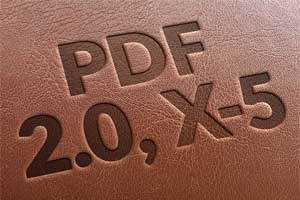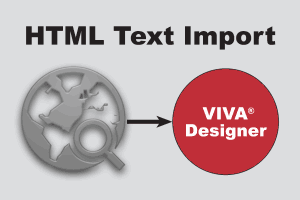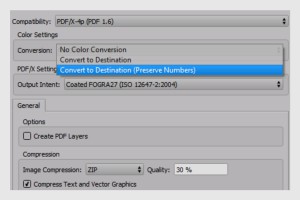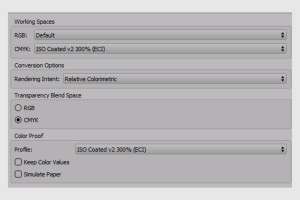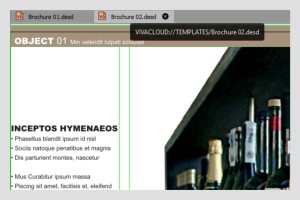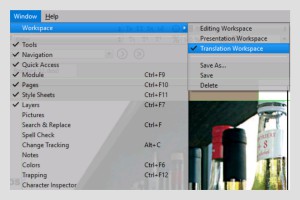The user interface has been completely overhauled: Palettes can now not only be stacked but also minimised, opened and combined in new groups. The palettes are displayed in the same way on all platforms and, with just a few exceptions (Mac OS), provide the same functionality. An additional new feature is the “Quick Access” bar palette with the most important attributes. The new user interface is a great advantage, particularly for Mac users.
PDF 2.0, PDF/X-4 & PDF/X-5
Previous versions support PDF formats up to PDF 1.6 and PDF/X-3. With Version 9 you can also create documents in the formats PDF 1.7 and PDF 2.0. Furthermore, Version 9 supports the PDF/X-4, PDF/X-4p and even the PDF/X-5g and PDF/X-5pg formats. The user interface for the creation of PDF/X files has been improved from the bottom up, so that even beginners should be able to create correct PDF/X documents. Version 9 also supports PDF layers.
12: New HTML text import
With the new HTML import you can import HTML text perfectly with all its attributes. The tags or class definitions used in HTML are automatically mapped to existing style sheets in the document. In this way you can create text in any browser application and display it in VivaDesigner in different styles, always with typographic perfection. This all works fully automatically without any programming, complicated tables of manual editing. This option is particularly suited for working with CMS or publishing systems and VIVA publishing servers.
New Eyedropper function
With the Eyedropper function you apply all the attributes of an object, text or an image to other objects, text or images in seconds.
New layer functions
Duplicate layers with optional content takeover and automatic application of a language. In translation, for example, this option saves you the deletion of content in one language variation as well as the assignment of the new target language for every single text object in the document. Furthermore, in combination with the “Team Publishing” module, all objects on a layer may be applied to an assignment with a single keystroke.
12: Enhanced Print (9.5)
The output on normal (laser/inkjet) printers was enhanced again and from now on you don´t need any additional software.
Enhanced PDF Output (9.5)
With the new Color Space Conversion and the Color Profile Integration you can create perfect PDFs for the target color space.
Color Management (9.5)
The color management function has been extended considerably. With the new rendering methods you can define how colors are interpreted on your screen. With the new option “Color Proof” you can define a color profile for your screen.
Tabbed Document window (9.5)
Documents are shown as tabbed windows. If you move the mouse over the tab, a tool tip with the complete document path will be shown. You can open the document path directly with the help of the context menu.
Multiple Workspaces (9.5)
You can now create and choose between multiple workspaces.


